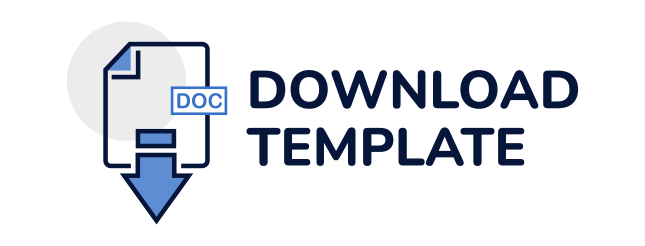Breaking Boundaries: How Self-Efficacy and Organizational Climate Foster Creativity in Polri Education
Abstract
This study aims to analyze the influence of self-efficacy, organizational climate and educator creativity in teaching. This research method is quantitative and uses an online survey. There were 248 educators from the education unit within the National Police who were involved in this study. Data analysis using SEM-PLS analysis with the help of SmartPLS software version 4. The results of the study are as follows; 1) Self-efficacy has a positive and significant effect on educators' creativity in teaching, 2) School organizational climate has a positive and significant effect on educators' creativity in teaching, 3) Self-efficacy has a positive and significant effect on school organizational climate, 4) Self-efficacy indirectly positively and significantly affects educators' creativity in teaching through school organizational climate. The results of this study show that increasing self-efficacy and improving the organizational climate in schools can significantly increase educators' teaching creativity. Therefore, schools must prioritize training and development programs that empower teachers and create a supportive work environment.
Keywords
Full Text:
PDFReferences
Adiebah, N., & Pradana, H. A. (2022). Transformational Leadership and Creative Self-Efficacy on Educators’ Creativity:Can Innovation Climate be the Mediating? JBTI : Jurnal Bisnis : Teori Dan Implementasi, 13(2), 96–111.
Ahmad, M., Suryadi, S., Matin, M., & Sugiarto, S. (2023). Organizational climate and quality of work-life in the creativity of teachers. International Journal of Evaluation and Research in Education (IJERE), 12(2), 905. https://doi.org/10.11591/ijere.v12i2.22738
Alsalamah, A. A. (2023). Special Education Teachers’ Self–Efficacy in Implementing Social–Emotional Learning to Support Students with Learning Disabilities. Learning Disabilities Research & Practice, 38(3), 209–223. https://doi.org/10.1111/ldrp.12318
Amar, M. F. (2024). Peran Kemampuan Komunikasi Interpersonal Pendidik Dalam Menumbuhkan Self-Efficacy. Aafiyah : Jurnal Multidisiplin Ilmu, 2(1), 1–13.
Bandura, A. (1998). Self-efficacy: Toward a unifying theory of behavioral change. Advances in Behaviour Research and Therapy, 1(4), 139–161. https://doi.org/10.1016/0146-6402(78)90002-4
Caena, F., & Redecker, C. (2019). Aligning teacher competence frameworks to 21st century challenges: The case for the European Digital Competence Framework for Educators (Digcompedu). European Journal of Education. https://doi.org/10.1111/ejed.12345
Chang, C.-P., Chuang, H.-W., & Bennington, L. (2011). Organizational climate for innovation and creative teaching in urban and rural schools. Quality & Quantity, 45(4), 935–951. https://doi.org/10.1007/s11135-010-9405-x
Datta, A., & Singh, R. (2018). Determining the dimensions of organizational climate perceived by the hotel employees. Journal of Hospitality and Tourism Management, 36(July), 40–48. https://doi.org/10.1016/j.jhtm.2018.07.001
Dorado, L. B., & Liona, G. C. B. (2019). Organizational Climate and Self-Efficacy as Correlates of Conflict Management in Faith-Based Basic Education Institutions. Abstract Proceedings International …, 7(1), 1411–1431. https://jurnal.unai.edu/index.php/isc/article/download/891/1483
Du, T., & Chang, Y.-C. (2023). Influence of Organizational Innovation Climate on Creativity and the Mediating Role of Feedback-Seeking Behavior—A Case Study of University Teachers in Hebei, China. International Journal of Learning, Teaching and Educational Research, 22(4), 87–103. https://doi.org/10.26803/ijlter.22.4.6
Fadhilah, Y., Salim, R. M. A., & Safitri, S. (2022). Teacher Efficacy and Teacher Social Perception in Creative Teaching for Elementary School Teachers. Jurnal Ilmiah Sekolah Dasar, 6(2), 212–219. https://doi.org/10.23887/jisd.v6i2.44760
Feng, X., Helms-Lorenz, M., & Maulana, R. (2023). Teachers’ Intrinsic Orientation, Self-Efficacy, Background Characteristics, and Effective Teaching: A Multilevel Moderated Mediation Modeling BT - Effective Teaching Around the World : Theoretical, Empirical, Methodological and Practical Insights (R. Maulana, M. Helms-Lorenz, & R. M. Klassen (eds.); pp. 543–574). Springer International Publishing. https://doi.org/10.1007/978-3-031-31678-4_24
Gjedde, L. (2013). Role game playing as a platform for creative and collaborative learning. 7th European Conference on Games Based Learning, ECGBL 2013, 1, 190–197. https://www.scopus.com/inward/record.uri?eid=2-s2.0-84893640833&partnerID=40&md5=49f103b0c48418aaf1e7d451201cdac8
Hair, J. F., Risher, J. J., Sarstedt, M., & Ringle, C. M. (2019). When to use and how to report the results of PLS-SEM. European Business Review, 31(1), 2–24. https://doi.org/10.1108/EBR-11-2018-0203
Hair Jr, J. F., Hult, G. T. M., Ringle, C. M., Sarstedt, M., Danks, N. P., & Ray, S. (2023). Partial Least Squares Structural Equation Modeling (PLS-SEM) Using R: A Workbook. In Structural Equation Modeling: A Multidisciplinary Journal (Vol. 30, Issue 1). Springer International Publishing. https://doi.org/10.1080/10705511.2022.2108813
Handayani, N., Rahmawati, I., & Lestari, H. (2022). Pengaruh Efikasi Diri Terhadap Kreatifitas Kerja Guru Pegawai Negeri Sipil (PNS) Sekolah Dasar Negeri Se-Kecamatan Cibungbulang. Primer Edukasi Journal, 1(2), 60–67. https://doi.org/10.56406/jpe.v1i2.6
Henseler, J., Ringle, C. M., & Sarstedt, M. (2015). A new criterion for assessing discriminant validity in variance-based structural equation modeling. Journal of the Academy of Marketing Science, 43(1), 115–135. https://doi.org/10.1007/s11747-014-0403-8
Hur, W. M., Moon, T. W., & Lee, J. H. (2021). The effect of self-efficacy on job performance through creativity: the moderating roles of customer incivility and service scripts. Asia Pacific Journal of Marketing and Logistics, 33(3), 888–905. https://doi.org/10.1108/APJML-03-2019-0138
Kizi, R. N. A. (2022). Creativity in Primary School El Teaching. American Journal Of Social Sciences And Humanity Research, 02(12), 109–124. https://doi.org/10.37547/ajsshr/Volume02Issue12-17
Kılıç, E., & Altuntaş, S. (2019). The effect of collegial solidarity among nurses on the organizational climate. International Nursing Review, 66(3), 356–365. https://doi.org/10.1111/inr.12509
Kundu, A., & Roy, D. D. (2023). How do teachers innovate? Role of efficacy for innovation and school climate perception. Psychology in the Schools, 60(12), 4885–4903. https://doi.org/10.1002/pits.22987
Lachowicz, M. J., Preacher, K. J., & Kelley, K. (2018). A novel measure of effect size for mediation analysis. Psychological Methods, 23(2), 244–261. https://doi.org/10.1037/met0000165
Lage-Gómez, C., & Ros, G. (2023). How transdisciplinary integration, creativity and student motivation interact in three STEAM projects for gifted education? Gifted Education International, 39(2), 247–262. https://doi.org/10.1177/02614294231167744
Liu, H.-Y., & Wang, I.-T. (2019). Creative teaching behaviors of health care school teachers in Taiwan: mediating and moderating effects. BMC Medical Education, 19(1), 186. https://doi.org/10.1186/s12909-019-1641-8
Lucumay, L. S., & Matete, R. E. (2024). Challenges facing the implementation of fee-free education in primary schools in Tanzania. Heliyon, 10(2). https://doi.org/10.1016/j.heliyon.2024.e24172
Ma, Y. (2022). The Effect of Teachers’ Self-Efficacy and Creativity on English as a Foreign Language Learners’ Academic Achievement. In Frontiers in Psychology (Vol. 13). https://doi.org/10.3389/fpsyg.2022.872147
Nasution, R. A. N., & Saragih, I. S. (2023). The influence of self-efficacy and organizational climate on employee performance. Enrichment : Journal of Management, 13(1), 127–134. https://doi.org/10.35335/enrichment.v13i1.1204
Nguyen, L. T., Dang, V. H., & Pham, H. T. (2023). The effects of school climate on high school teacher stress and self-efficacy in Ho Chi Minh City. Educational Psychology, 43(1), 57–77. https://doi.org/10.1080/01443410.2022.2128054
Nugroho, H., Chasanah, A. N., & Pamungkas, M. D. (2022). Pengembangan LKS Berbasis Etnomatematika Dengan Pendekatan Saintifik Untuk Meningkatkan Kemampuan Pemecahan Masalah Matematis Siswa. Jurnal Karya Pendidikan Matematika, 9(1), 78. https://doi.org/10.26714/jkpm.9.1.2022.78-84
Omote, A. (2017). Teacher self-efficacy and instructional speech: how teachers behave efficaciously in the EFL classroom. In JALT Journal. jalt-publications.org. http://jalt-publications.org/files/pdf-article/jj2017b-art1.pdf
Paek, S. H., & Sumners, S. E. (2019). The Indirect Effect of Teachers’ Creative Mindsets on Teaching Creativity. Journal of Creative Behavior, 53(3), 298–311. https://doi.org/10.1002/jocb.180
Printina, B. I., & Sumini, T. (2020). History Lessons During the Covid-19 Pandemic in DIY (Case Study Based on Desca Approach with the Principle of Independent Learning). Social, Humanities, and Educational Studies (SHEs): Conference Series, 3(2), 267. https://doi.org/10.20961/shes.v3i2.46247
Ristinah, N., Effendi, R., & Sulaiman, S. (2023). Relationship between Self-Efficacy, Organizational Climate, Work Commitment and Organizational Citizenship Behavior (OCB) of Public Junior High School Teachers in North Banjarmasin District. International Journal of Social Science and Human Research, 06(05), 2894–2902. https://doi.org/10.47191/ijsshr/v6-i5-49
Saifullah, A. M. M., Karnati, N., Arbah, F., Risdiyanti, A., & Adab, P. (2024). Bagaimana Peran Kepemimpinan Transformasional, Technological Pedagogical Content Knowledge, dan Efkasi Diri Dalam Meningkatkan Kinerja Guru? Penerbit Adab. https://books.google.co.id/books?id=e_P4EAAAQBAJ
Shah, N. H., Shaheen, I., & Abbas, A. (2022). Effect of organizational climate on self-efficacy of Teachers at secondary school level in Azad Jammu and Kashmir. Journal of Social Sciences Advancement, 3(4), 212–217. https://doi.org/10.52223/jssa22-030403-49
Suckley, L., & Nicholson, J. (2018). Enhancing Creativity Through Workspace Design BT - The Palgrave Handbook of Creativity at Work (L. Martin & N. Wilson (eds.); pp. 245–263). Springer International Publishing. https://doi.org/10.1007/978-3-319-77350-6_12
Supriyatna, S., Kadar, I., & Wulandari, D. (2023). Strengthening Organizational Culture, Transformational Leadership, Self-Efficacy, and Achievement Motivation in Increasing Innovation Efforts. International Journal of Social Health, 2(5), 202–216. https://doi.org/10.58860/ijsh.v2i5.44
Sutjonong, W. R., Salim, R. M. A., & Safitri, S. (2022). Teachers’ Self-Efficacy as a Mediator of Their Perception and Behavior regarding Creative Teaching for Elementary School Students. Mimbar Sekolah Dasar, 9(1), 161–173. https://doi.org/10.53400/mimbar-sd.v9i1.44253
Tamsah, H., Yusriadi, Y., Hasbi, H., Haris, A., & Ajanil, B. (2023). Training Management on Training Effectiveness and Teaching Creativity in the COVID-19 Pandemic. Education Research International, 2023, 1–15. https://doi.org/10.1155/2023/6588234
Usher, E. L., & Morris, D. B. (2023). Self-efficacy (H. S. Friedman & C. H. B. T.-E. of M. H. (Third E. Markey (eds.); pp. 117–124). Academic Press. https://doi.org/https://doi.org/10.1016/B978-0-323-91497-0.00085-0
Wahyono, I., & Widodo, J. (2021). The Role of Self Efficacy in Determining Job Satisfaction: Case Study on Senior High School Teacher. 6th International Conference on Science …. https://www.atlantis-press.com/proceedings/iset-20/125964390
Wolf, P., Cormican, K., Frederiksen, M. H., Wilhøft, A., Ulus, H. E., Kunz, C., Andiç-Çakır, Ö., Sarsar, F., & van Leeuwen, M. (2024). I think they just logged on and fell asleep: Challenges to facilitating creativity online in higher engineering education. Creativity and Innovation Management. https://doi.org/10.1111/caim.12599
Wuryaningsih, W. (2023). Program Pendidikan Guru Penggerak, Efektifkah?: Sebuah Ulasan pada Kerangka Pengembangan Profesional Guru. Jurnal Widyaiswara Indonesia, 4(2), 17–26. http://www.ejournal.iwi.or.id/ojs/index.php/iwi/article/view/130%0Ahttp://www.ejournal.iwi.or.id/ojs/index.php/iwi/article/download/130/88
Yada, T., & Savolainen, H. (2023). Principal self-efficacy and school climate as antecedents of collective teacher efficacy. School Effectiveness and School Improvement, 34(2), 209–225. https://doi.org/10.1080/09243453.2023.2170425
Zysberg, L., & Schwabsky, N. (2021). School climate, academic self-efficacy and student achievement. Educational Psychology, 41(4), 467–482. https://doi.org/10.1080/01443410.2020.1813690








.png)